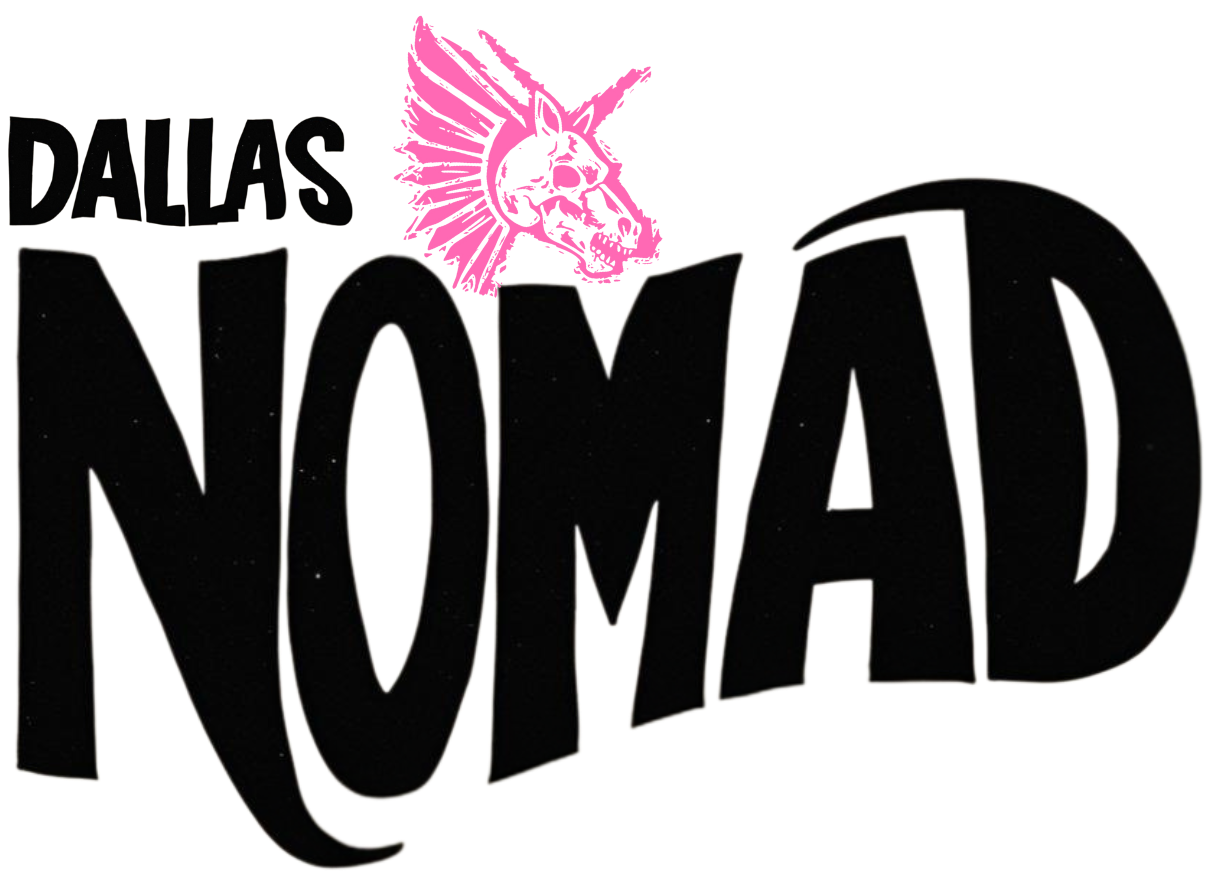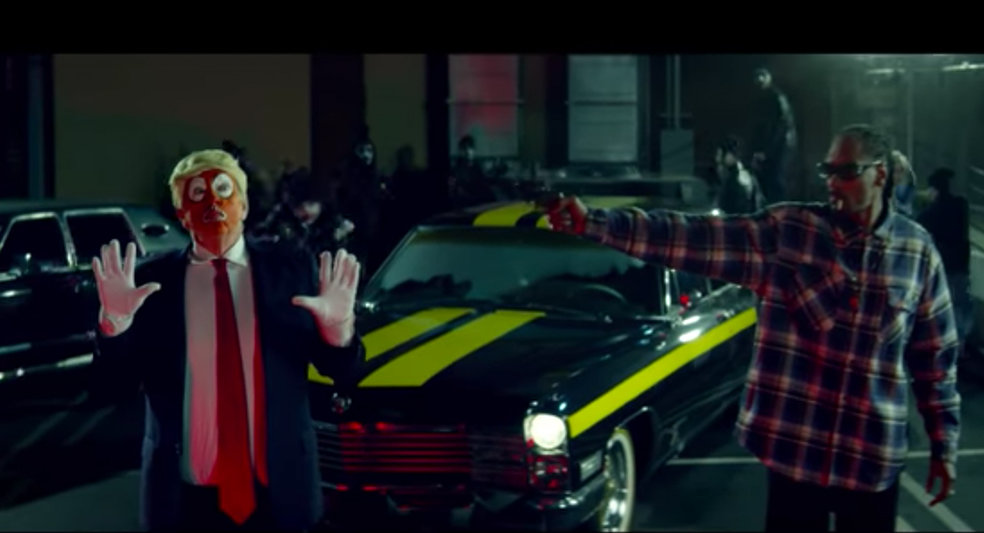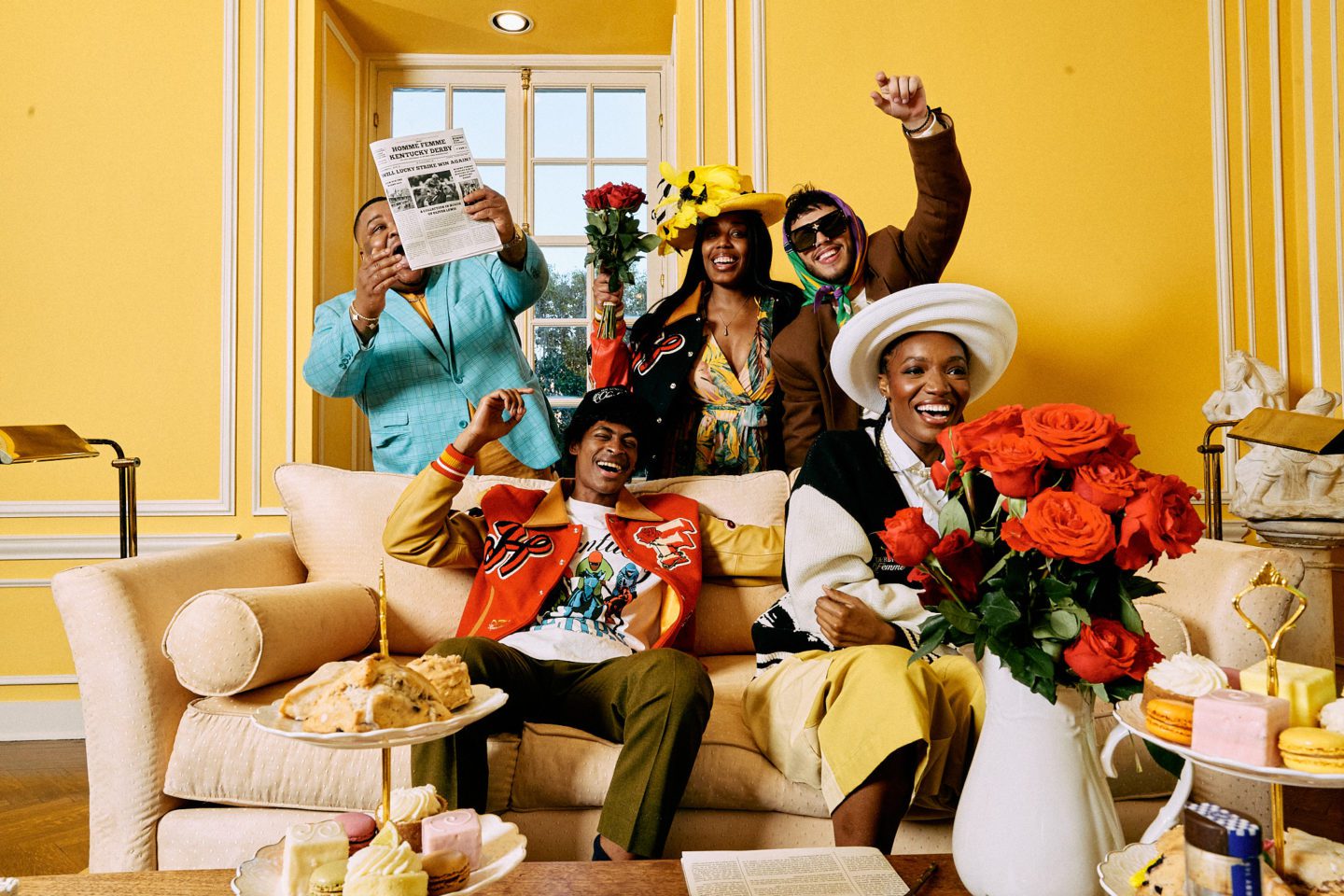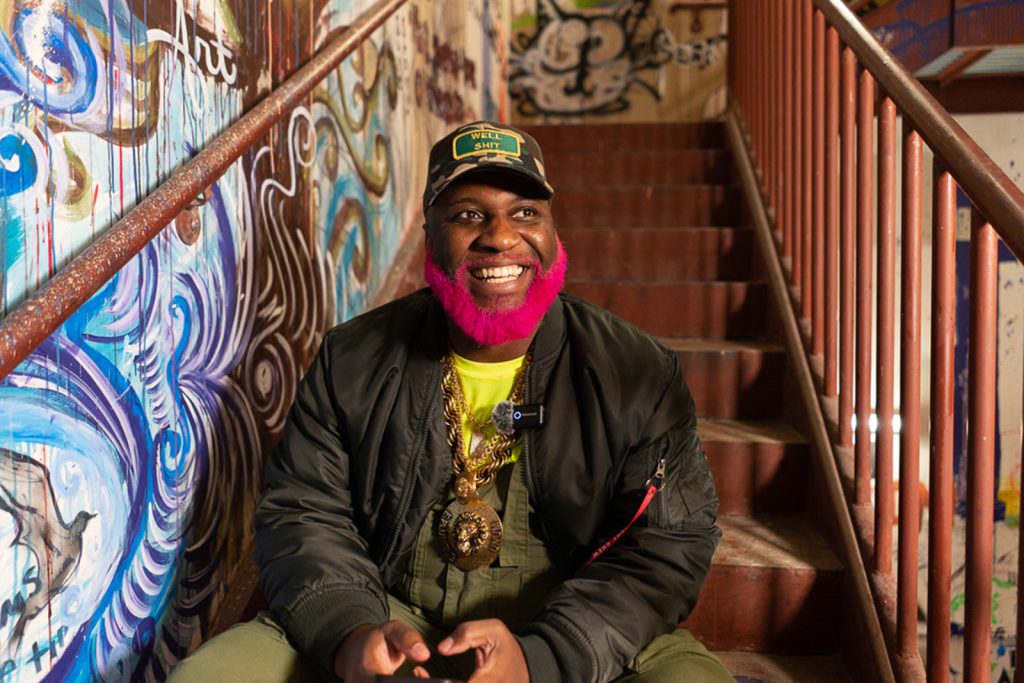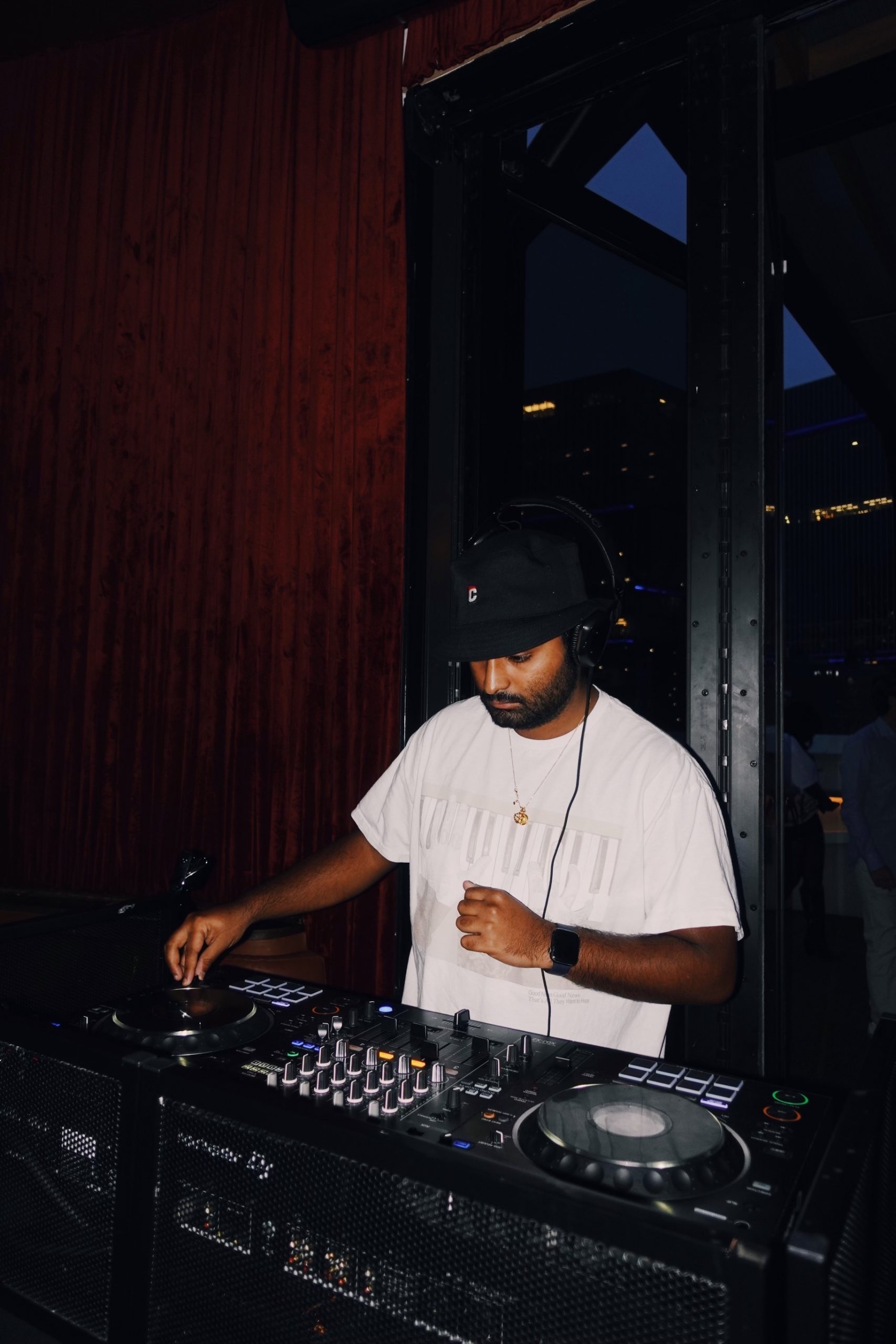January 20 was a strange Monday. Frigid air from the latest arctic blast crackled with a strange energy across much of the nation. Not the celebrity energy that usually befalls on the day commemorating Dr. Martin Luther King, or the electric anticipation of the new era King dreamed of, but a simmering unease. It was the day of the 60th Presidential Inauguration Day, 2025. And while 170 million dopamine-heads were fresh off of the 12-hour TikTok fiasco, still, the nation, weary from years of political division, was bracing for another spectacle that was certain to come.
We could feel it. This would be no ordinary MLK Day or inauguration, though some would argue that since Barack Obama stepped onto the scene as the first Black President, inaugurations haven’t really been all that normal. This year, the festivities were being marked by a distinct sense of unease, a feeling that something wasn’t quite right. Sure, TikTok had been down just the day prior, but the internet was still ablaze. Not with the fiery passion of a thousand suns, but with the simmering resentment of a thousand lukewarm takes.
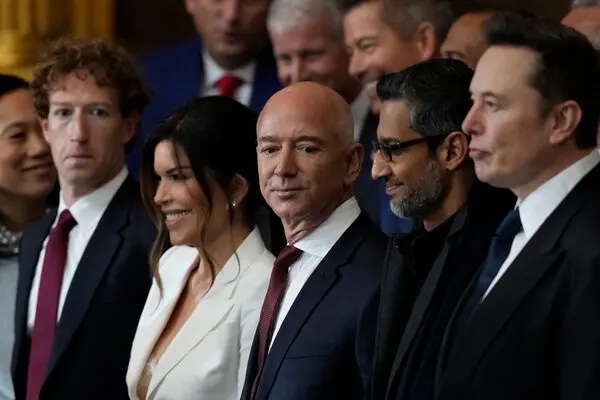
The topic of endless thought-pieces and short-form commentary videos flooding the digital world wasn’t just the President-elect himself, but the individuals who’d seemingly lined up, checks in hand, for a chance to join the VIP section of the MAGA clique what seemed had been anticipatory compliance.
First, there were the tech bros – or the PayPal Mafia if you will. Not only had bros like Peter Thiel played an expensive game of political chess to install JD Vance as Trump’s running mate while promising to fund his third bid for the Oval Office, but they’d also invested enough of their long Silicon Valley money to get them a handful of seats inside the Trump 2.0 Administration.
“that sh*t not right.”
– Soulja Boy, 2019 (About Kanye West supporting Trump)
Seeing as clearly as any other American the trend unfolding, Biden, during his farewell speech had warned, “Today, an oligarchy is taking shape in America of extreme wealth, power and influence that literally threatens our entire democracy, our basic rights and freedoms, and a fair shot for everyone to get ahead.” Biden continued, drawing attention to “a dangerous concentration of power in the hands of a few ultra-wealthy people and the dangerous consequences if their abuse of power is left unchecked.”
The power of these ultrarich players had been on display throughout the campaign and was zoomed in on in the months between Trump’s victory and the day the nation held its collective breath, waiting for his reinstallation. The picture would become overwhelmingly clear on January 20, when, during the inauguration, the same tech billionaires who’d funded Trump’s historic comeback sat atop the platform, a row behind the Trump and Vance families.
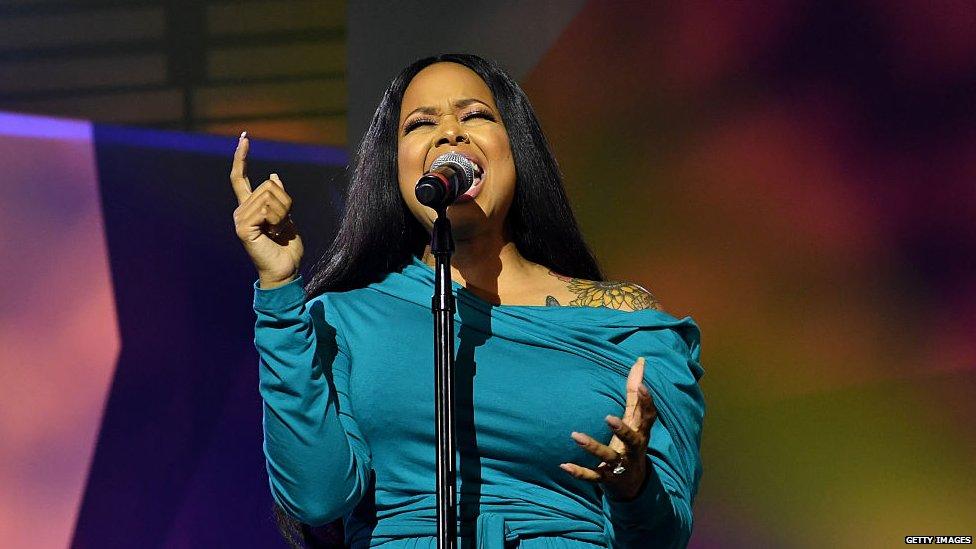
But the cozying up of the Silicon Valley bros to Trump hasn’t been all that surprising. After all, there is a history of the wealthy, who have deep business and fiscal interest in policies around technology, privacy, consumer protections, taxes, tariffs and handing their support checks to the candidate most likely to positivity impact their bottom line. While the Biden administration had been a pain, slapping regulations on big tech, Trump promised a stark contrast – all but complete and utter freedom for big tech in exchange for their unwavering loyalty, a quick peck on the ring and the low-low price of $1 million donation to the inaugural fund.
While the big tech CEOs were awaiting news of their inauguration seating assignments, there was another cultural storm brewing. In preparation for Trump’s return to the Oval, a series of concerts were being planned. And needless to say, certain parts of the lineup was deemed problematic for some.
How problematic could a concert be? Is it a Nickelback reunion? A tribute band for that one guy from Creed? Did 2Pac actually come out of hiding, proving all the Don Killuminati/7 Day Theory/Makaveli conspiracies right?”
No. The lineup became a topic of discussion when it was announced the four (Black!) artists, Snoop Dogg, Rick Ross, Nelly, And Soulja Boy had all accepted invitations to perform for the same President-elect that each of them had previously gone on record strongly critiquing.
“Let’s make it clear, you vote for who you wanna vote for, it’s fine with me, but one of my homies, he was just like, ‘I can’t wait ’til Trump get back in here. He had a n***a eatin’.’ And I just don’t want nobody to be a delusional. You can’t be a delusional n***a. Did he have you eating or was it a nationwide, worldwide pandemic and you n***as stole the money?”
– Rick Ross, 2024
Snoop Dogg, Rick Ross, and Soulja Boy, all of whom performed at the first-ever Crypto Ball, held in D.C. on January 17, and Nelly, who would later perform at the Liberty Inaugural Ball, drew criticism from individuals who pointed out the hypocrisy given their previous statements. Of the previous statements made by these performers, Snoop’s was probably the strongest, when, in 2018, he berated a podcast host with an expletive riddled monologue about Trump being a racist. The year before, in 2017, Snoop pointed a gun at a clown dressed as Trump in a music video.
But in 2025, it seemed that all of these creative critics had changed their very public stances, and the conversation quickly turned to one about the role that gender would probably play in the career outcomes of the four artists.
Online commentators pointed out that just eight years ago, singer Chrisette Michele accepted a similar invitation to perform at one of Trump’s 2017 Inauguration calls. Soon after Michele’s decision was announced, “cancel culture” crucified her career, excommunicated her from polite society, and all but forced her to live out her days in a remote cabin, subsisting solely on quinoa and regret. Onlookers wanted to know, would the rappers face the same fate? Many assume the answer would be no.
“Well, you need to know that a lot of your fans is racist. I don’t give a f**k, I tell them straight up. If you like that n***a, you motherf***** racist. Kanye too. Before him, there were no lines. Everybody was everybody, we respected everything. We didn’t trip. Don’t forget about him too. F**k you, too.”
– Snoop Dogg, 2018
Our society grapples with a disturbing double standard when it comes to holding individuals accountable for their actions, and Black culture suffers from the same double-standard, potentially at a higher degree. While some are swiftly condemned and banished from public life for minor transgressions, others, particularly rich and powerful Black men, seem to enjoy an almost impenetrable shield of protection. This disparity is deeply rooted in a complex web of factors, including gender, race, power dynamics, and the pervasive influence of celebrity culture.
The recent cases of R. Kelly and Megan Thee Stallion starkly illustrate this double standard. Despite overwhelming evidence against R. Kelly, including numerous testimonies from survivors, he maintained a loyal fanbase that refused to believe the allegations and even went so far as to shame his victims, all while stepping in the name of love. In contrast, Megan Thee Stallion, a young Black woman, faced immense scrutiny and disbelief when she came forward with accusations against Tory Lanez.
In politics, the Anita Hill hearings still serve as a chilling reminder of the consequences of challenging powerful Black men. Despite her credible testimony, Hill faced intense public scrutiny, harassment, and even death threats. This experience not only traumatized Hill but also sent a chilling message to other women who may have considered coming forward with their own stories of sexual harassment.
These cases, while distinct, share a common thread: the reluctance to hold powerful men, Black men included, accountable for their actions while simultaneously demanding swift and severe consequences for women, and particularly Black women, who transgress social and cultural norms.
In each of these cases, there is a phenomenon to consider: Misogynior, or the dislike of, contempt for, or ingrained prejudice against Black women. This prejudice though isn’t always reserved for the sole wielding of others, but is often used against Black women at the hands of not only Black men, but other Black women.
“You know the thing about Donald Trump is that I liked Donald Trump, I did, I just don’t like Donald Trump as my president. Dude is a trip. Pre-presidency, I was cool with the Donald. Loved his hotels. I’m more or less mad at him because I can’t stay at his hotel now. You done fucked that up. And I’ve been staying there for 15 years, and now you pull this. Get it together, homie.”
– Nelly, 2017
It’s no secret that within Black culture, there is a longstanding flavor of patriarchy that seems to linger. This patriarchy isn’t just held up by the men who benefit from it, but also by the women who’ve been socialized and conditioned to internalize and ultimately protect the same oppressive system that’s built on pillars of racism and sexism that impact their day-to-day lives.
Snoop, Ross, Boy and Nelly, who’ve been subjected to systemic oppression, have also learned to internalize aspects of that oppression as a survival mechanism. Simply put, they were compelled to “kiss the ring” as a means of survival or self-preservation. Nelly was one of the most vocal in the aftermath, defending his performance by likening it to an act of civic duty. “I’m doing this because it’s an honor. I respect the office. It doesn’t matter who is in office. The same way that our men and women, our brothers and sisters who protect this country, have to go to war and have to put their life on the line for whoever in office. So if they can put their life on the line for whoever in office, I can damn sure perform.”

Similar to women who uphold patriarchy, Black women who protect misogynior, and the laundry list of CEOs who quickly lined up to make their offers to President Donald Trump in both anticipatory compliance and in hopes of finding favor with their oppressor, human behavior will be such.
Still, how much does human behavior factor into who should be forgiven? How a woman’s career can be utterly destroyed by a single performance, while men can stumble through a minefield of questionable behavior and emerge relatively unscathed? It’s like a bizarre game of double standards, played out on the grand stage of social media and only time will tell if these men will actually be banished or simply sail off into the abyss of male privilege and misogynior.
